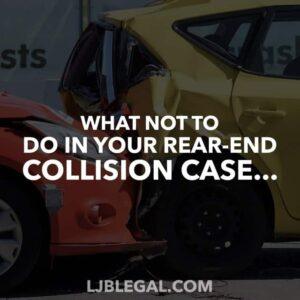
If you’ve been in a car accident in Louisiana, one of the most common questions people ask is: “What kind of doctor should I see after a car accident?” My answer as a Louisiana personal injury lawyer: you need to see a medical doctor who understands crash injuries. But there’s more to it, especially if you want to protect both your health and any legal claim you might have.
Start With the Emergency Room, Even If You Feel Okay
Your first stop after any car crash should be the emergency room. Even if you don’t feel a lot of pain right away, it’s important to get checked out. Emergency room doctors will evaluate you for serious or life-threatening injuries and provide immediate care. They may give you muscle relaxers, anti-inflammatories, and other basic medication to manage early symptoms.
Many crash injuries, like whiplash, soft tissue damage, or joint trauma, don’t feel bad at first. But they often get worse over the next few days. Going to the ER creates a medical record right away, which helps show that your injuries were caused by the accident.


We GET IT DONE
Clients trust us to handle their case properly and effectively
FREE Confidential Case Review (985) 240-9773When Should You Call Emergency Medical Services?
So, when exactly should you dial 911 after a car wreck? The answer: anytime there’s a chance someone is seriously hurt, or you’re just not sure. Trust your gut. If anyone at the scene has trouble breathing, heavy bleeding, broken bones, deep cuts, severe burns, or even seems unusually confused or disoriented, call emergency medical services immediately. These injuries can quickly become life-threatening, and getting help on the way is always the right move.
Don’t try to “tough it out” or brush off obvious pain, especially if you or anyone else lost consciousness, feels numbness or tingling, or can’t move part of their body. And when in doubt? Play it safe. Medical professionals from emergency services are trained to handle these situations and can transport you or others for proper hospital care.

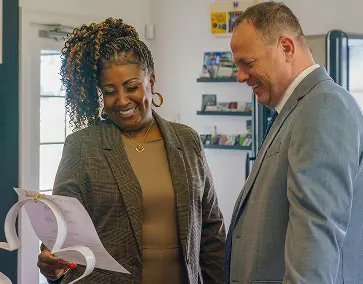
We DO THE RIGHT THING
The correct choice – always – is to do the right thing.
FREE Confidential Case Review (985) 240-9773When Urgent Care Makes Sense After a Crash
Now, let’s talk about urgent care centers. Not every car accident injury is dramatic enough for sirens and a stretcher. Sometimes, you might be banged up, sore, or generally worried, but don’t feel like you’re at risk of losing life or limb. In those situations, where you aren’t dealing with head trauma, broken bones poking out, severe bleeding, or anything that feels truly scary, an urgent care clinic can be a smart next step.
- Your injuries seem mild, like minor cuts, lingering pain, or general soreness
- The ER wait times make you question your life choices, but you still need a doctor to get checked out
- Your doctor’s office is closed, or you can’t get an appointment soon enough
The doctors at urgent care are fully qualified to assess accident injuries, offer basic treatment, take X-rays if needed, and start that crucial medical paper trail for your case. Plus, urgent care usually means a quicker visit and a smaller bill than a visit to the emergency room.
But, and this is important, if you have any doubt about the seriousness of your injuries, play it safe and head straight to the ER. Symptoms like chest pain, shortness of breath, confusion, loss of consciousness, or anything that feels “off” in a big way aren’t worth gambling with.
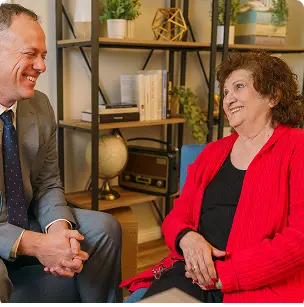

We ARE TRANSPARENT
We don’t play games and we don’t hide the ball.
FREE Confidential Case Review (985) 240-9773Assessing Your Injuries at the Scene: What to Do First
Right after a car accident, your adrenaline is likely pumping, and it can be tough to figure out exactly how you’re feeling. Still, it’s worth taking a minute—before you jump to help others, talk to the police, or start moving around—to do a quick check on yourself.
- Start from head to toe. Take a few deep breaths and ask yourself if anything feels “off.” Look for obvious injuries like bleeding, swelling, pain, or trouble moving a limb.
- Watch for signs of serious harm. If you notice severe bleeding, deep cuts, broken bones, burns, or you feel dizzy, extremely weak, or confused, don’t try to move. Call 911 immediately or ask someone else to get help right away.
- Don’t ignore subtle symptoms. Just because you’re not in agony doesn’t mean you’re in the clear. Many injuries, including whiplash, concussions, or soft tissue damage, can be sneaky and show up slowly over hours—or days.
Even if you think you just have a few bumps or bruises, tell the police or ambulance crew that you want to be checked out. You’re not overreacting; you’re looking out for your future health (and building a record of your injuries, which is critical for your legal case).
When in doubt, err on the side of caution. Your body will thank you, and so will your case.
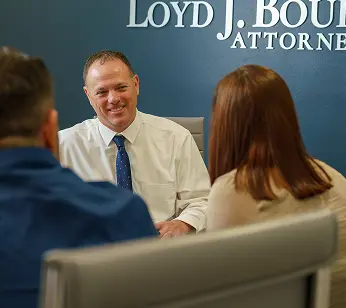
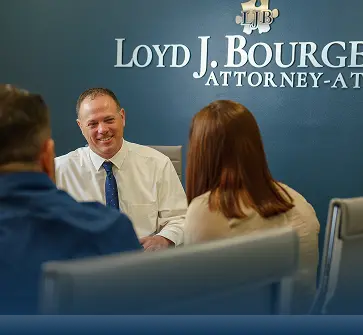
We ARE COMPASSIONATE
Emotionally intelligent listeners with positive attitudes.
FREE Confidential Case Review (985) 240-9773Why Immediate Medical Attention Matters
After a car accident, it’s easy to underestimate your injuries, especially when adrenaline is pumping and you’re still sorting out what just happened. But some injuries hide beneath the surface, only to get worse over time. That’s why getting a thorough medical evaluation as soon as possible is crucial, even if you think you “feel fine.”
Not only does prompt care protect your health, it also strengthens any potential insurance or legal claim by linking your injuries directly to the crash from day one.
Follow-Up With a Doctor Who Specializes in Car Accident Injuries
After the emergency room, your care shouldn’t stop there. It’s important to follow up with a clinic or medical facility that has a medical doctor (MD or DO) on staff, especially one experienced in diagnosing and treating car accident injuries. These doctors can monitor your symptoms, order imaging like MRIs if needed, and develop a treatment plan that works for your specific injury.
Be cautious about going only to a chiropractor or massage therapist. While these professionals can play an important role in your recovery, they should not be your primary provider. You need a medical doctor to oversee your treatment and coordinate your care team.
Depending on the Injury, You May Need a Specialist
- Orthopedic doctors: If you hurt your knee, shoulder, hip, ankle, wrist, or other joints.
- Neurologists or neurosurgeons: For ongoing neck, back, or nerve pain.
- Pain management specialists: To help manage long-term pain after serious injury.
How to Decide Which Medical Specialist You Need
Your journey doesn’t end with the ER visit. The next step is figuring out which kind of medical specialist is right for your situation. Here’s how to break it down:
- Consider where you hurt: Are you dealing with joint pain (like your shoulder, knee, or wrist)? Is your back or neck acting up? Any numbness, tingling, or headaches?
- Look at the severity: If you have trouble moving, severe pain, or experience symptoms like dizziness, confusion, or loss of consciousness, don’t wait—get evaluated by the right doctor immediately.
- Think about your health history: If you have previous injuries or conditions, mention those. Some symptoms may be related.
Even if injuries seem minor, like soreness, mild headaches, or stiffness, they can become serious without the right attention. That’s why documenting everything, following up with qualified professionals, and having a clear game plan for treatment is so important.
Why It Matters for Your Health and Your Case
Seeing the right kind of doctor after a car accident doesn’t just help you heal—it also helps document your injury properly. If you’re planning to file a claim, these medical records will show that your injuries are real and serious. Insurance companies often look for any reason to downplay or deny your claim. Delaying treatment or only seeing non-MD providers can give them that reason.
The Role of Physical Therapists in Car Accident Recovery
Physical therapists are often a key part of the recovery team after a car accident. If you’re dealing with limited mobility, muscle weakness, or stiffness from your injuries, working with a physical therapist can help you regain strength and function faster.
These specialists design personalized exercise programs to target your specific needs—whether that’s helping you walk without limping, restoring range of motion in a stiff shoulder, or making daily tasks like getting in and out of your car easier again.
Your physical therapist will usually coordinate closely with your orthopedic doctor or primary physician. Together, they’ll adjust your recovery plan to match your progress. Sticking with your physical therapy not only boosts your chances for a full recovery, but also creates clear medical records that can support your injury claim.
If your injuries involve sprains, muscle tears, or anything affecting how you move, ask your doctor if physical therapy should be part of your treatment plan. It’s one more way to get you back to feeling—and moving—like yourself.
What Should You Include in Your Documentation for a Personal Injury Claim?
If you’re considering a personal injury claim after a car accident, creating a solid paper trail is one of the smartest things you can do for your case (and your health). Meticulous documentation makes it much harder for an insurance company to downplay what you’ve gone through.
- Complete Medical Records: Save every medical report related to your crash. This includes ER notes, initial evaluations, follow-up visit summaries, specialist referrals, test results (like X-rays or MRIs), prescriptions, and clearly listed diagnoses and treatment plans.
- Treatment Timeline: Jot down every appointment, who you saw, and what was done. A simple calendar, notebook, or even your phone can do the trick. Or get a copy of our free injury diary. The goal? Trace your recovery step-by-step. Don’t leave any gaps for the insurance company to nitpick.
- Doctor’s Instructions and Bills: Hang onto written instructions from doctors (restrictions on work, therapy schedules, medication guidelines). Save your receipts and billing statements, even if insurance pays. These show both your out-of-pocket cost and the seriousness of your care.
- Photos and Notes: Take pictures of your injuries as they heal or worsen. You don’t need pro lighting—just clear snapshots. Also, consider keeping a daily or weekly pain and recovery journal. These details can be powerful if your case gets questioned.
- Communication Records: Save emails, letters, and voicemails from your healthcare providers and any insurance adjusters involved.
And here’s some simple but critical advice: don’t sign any insurance company forms to release your records without talking to your lawyer first. Let your attorney coordinate this so your privacy is protected, and only relevant, accurate information is shared.
A well-organized set of documents helps show you’re serious and that your injuries are real. Getting this right can make the difference between a dismissed claim and a fair recovery.
What to Do After a Louisiana Car Accident
- Always go to the emergency room first after a car accident in Louisiana.
- Follow up with a medical doctor experienced in car accident injuries.
- See specialists like orthopedists, neurologists, or pain management doctors if needed.
- Avoid using only chiropractors or massage therapists for your care. They are helpful but not enough on their own.
- Early and proper treatment helps both your recovery and your legal case.
If you’re unsure where to go or need help getting the right care after a crash, our team can connect you with trusted doctors across Louisiana who know how to treat accident-related injuries and who understand the importance of clear medical records for your case. Give us a call at 985-240-9773.



